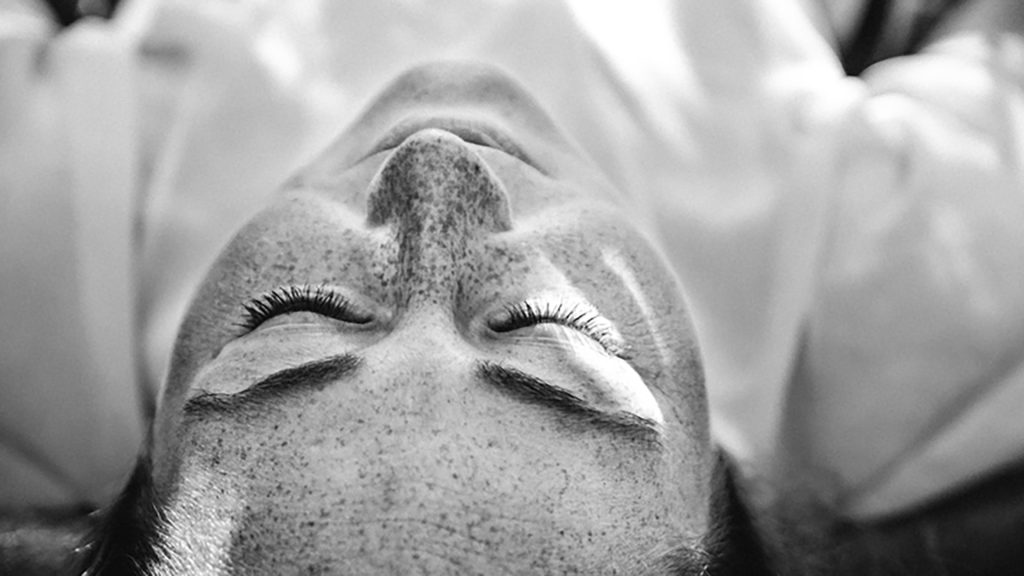“Get a good night’s sleep.” “Sleep on it.” “Sleep is the best meditation.” We’ve always known that sleep is important. But what you might not know is how detrimental not getting enough sleep can be — and what you can do to change it.
Our brains need regular and consistent deep rapid eye movement (REM) sleep in order to function at full capacity. REM sleep is the also known as ‘dream sleep’ and this is the stage of sleep where your body repairs and replenishes itself. It’s this quality of sleep that is an imperative part of maintaining physical and mental health.
Sleep researchers put the required amount of sleep needed on average between seven and nine hours each night. Anything less than seven hours is classed as insufficient sleep.
Of course, we all know those who proudly say that they can manage with less sleep, whether it is 4, 5 or 6 hours. I have been one of those and yes, there are times that circumstances push us to the limits to get things done. This doesn’t mean that its good for us to do this all the time.
Sleep affects many areas of our life that we don’t readily realize. These impacts can be both immediate as well as long-term. The first step to creating change so as to improve your sleep, health and well-being is to become aware of the possibilities and opportunities.
Some of the immediate impacts of insufficient sleep include:
- It can negatively impact your diet and food choices. People who sleep less than 7 hours a night tend to consume 200 to 300 extra calories each day.
- Did you know that drowsy driving causes more accidents than drugs or alcohol? That’s because sleeplessness decreases your reaction times, and in the event that you nod off for just a few seconds, you will effectively have no time to react to an emergency.
- The time it takes you to reach physical exhaustion decreases. Your peak muscle strength and basic balance abilities are quickly reduced.
Some of the more serious and long-term effects of insufficient sleep:
- Having just six hours of sleep per night rather than the recommended seven to nine hours can increase your risk of heart attack and cardiovascular disease.
- Insufficient sleep has been linked to cancer and Alzheimer’s disease.
- Delirium tremens occurs when we don’t get the REM sleep we require. Our brain fights back and claims the dream sleep that it requires; we are essentially dreaming while we’re awake, and the unconscious and the conscious brain collide. People can experience tremors and minor shaking in their hands.
- Paranoia and hallucinations can occur in extreme cases of sleep deprivation; people can see things that are not really there; and feelings of paranoia can increase. This is more prevalent in extreme sleep cases of deprivation, such as ultra marathon running where people may be awake for days on end.
What can you do to improve the quality and quantity of your sleep?
- Regularity is the key with improving sleep. Set a realistic time to go to bed and wake in the morning and keep it consistent. Ensure that your bedtime and wake time gives you a minimum of seven hours of sleep. A bedtime routine such as a relaxing shower or reading a book will help your brain understand that it’s nearing that time to sleep, and naturally increase drowsiness.
- During the last hour before bedtime, limit the usage of phones, computers and tablets. Resist the urge to check your email or Facebook one last time.
- You can also dull the artificial light in your home by turning off the main lights and using soft lamps. Decreasing light sources will signal to your brain that it’s time for sleep.
- Keep your environment cooler for better sleep quality. Your brain needs to drop two to three degrees Fahrenheit (one to two degrees Celsius) to get into “sleep mode.”
- Don’t go to bed too hungry or too full. Make sure you are comfortable. Going to bed too soon after eating can stimulate a hormone that encourages wakefulness. Avoid high-starch and high-sugar diets.
A challenge for us all is the continual increasing demand of our attention and time. The blurred boundaries between work, family, social, and community responsibilities doesn’t always end up with the right decisions being made regarding what we choose to eat, how we exercise, when we rest, and, in the end, creating the necessary time to sleep and recover.
It might be worth taking a page out of the high-performance playbook from the corporate world, and creating an item on your to-do list to make sure that you give your body enough time to recover and replenish needed energy levels. As the Dalai Lama says: “sleep is the best meditation.”
[text-block-start]
NEW! Put the principles from this article into practice with the free courage-boosting MaArtial app on the App Store for iOs and Play Store for Android.
At MaArtial, we fully endorse the facts presented in this article regarding a lack of sleep.
For all martial arts training, and indeed, life, we need sufficient energy.
By following the advice presented here you will be well on your way.
[text-block-end title=”MaArtial comment”]












